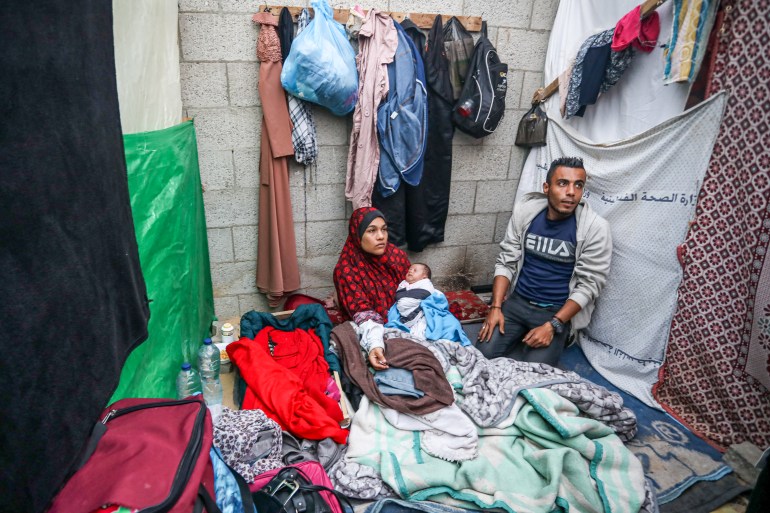Esraa Kamal al-Jamalan was practically eight months pregnant when she, her husband and their five-year-old son had been compelled to flee their northern Gaza neighbourhood of Sheikh Radwan after it was bombed by Israel in late October. They walked greater than three kilometres (1.86 miles) to al-Shifa Hospital, the place many individuals had been sheltering, taking with them only some light-weight T-shirts and trousers as they anticipated to quickly return house.
Two months later, 28-year-old Esraa and her household live in one of many a whole lot of makeshift tents in Deir el-Balah in central Gaza with no technique of defending her new child from the tough winter — chilly temperatures mixed with rains. “When it first started raining here, I hadn’t given birth yet. Me and my husband were trying to find shelter from the rain, as the water kept seeping through here and there in the tent,” Esraa mentioned, sitting together with her daughter in her lap, her pores and skin pale and yellow. “We’ve been through rough days. We have never seen something like this before.”

Being unhoused in tough climate situations and with out heat clothes and blankets, the couple are struggling to maintain their new child daughter heat inside their tent. They can’t take her exterior both, near the fires that individuals are burning for heat because the smoke offers her respiration difficulties.
“The other day, she kept coughing [from wood smoke] until she turned blue. We were terrified she could have died,” Esraa defined, her voice shaking. “I am worried the most about my daughter. She hasn’t even gotten vaccinated yet.”
As Israel’s assault on Gaza enters its twelfth week, Al Jazeera spoke to Palestinians within the Gaza Strip concerning the challenges introduced on by the arrival of winter for the practically two million individuals internally displaced within the enclave.

